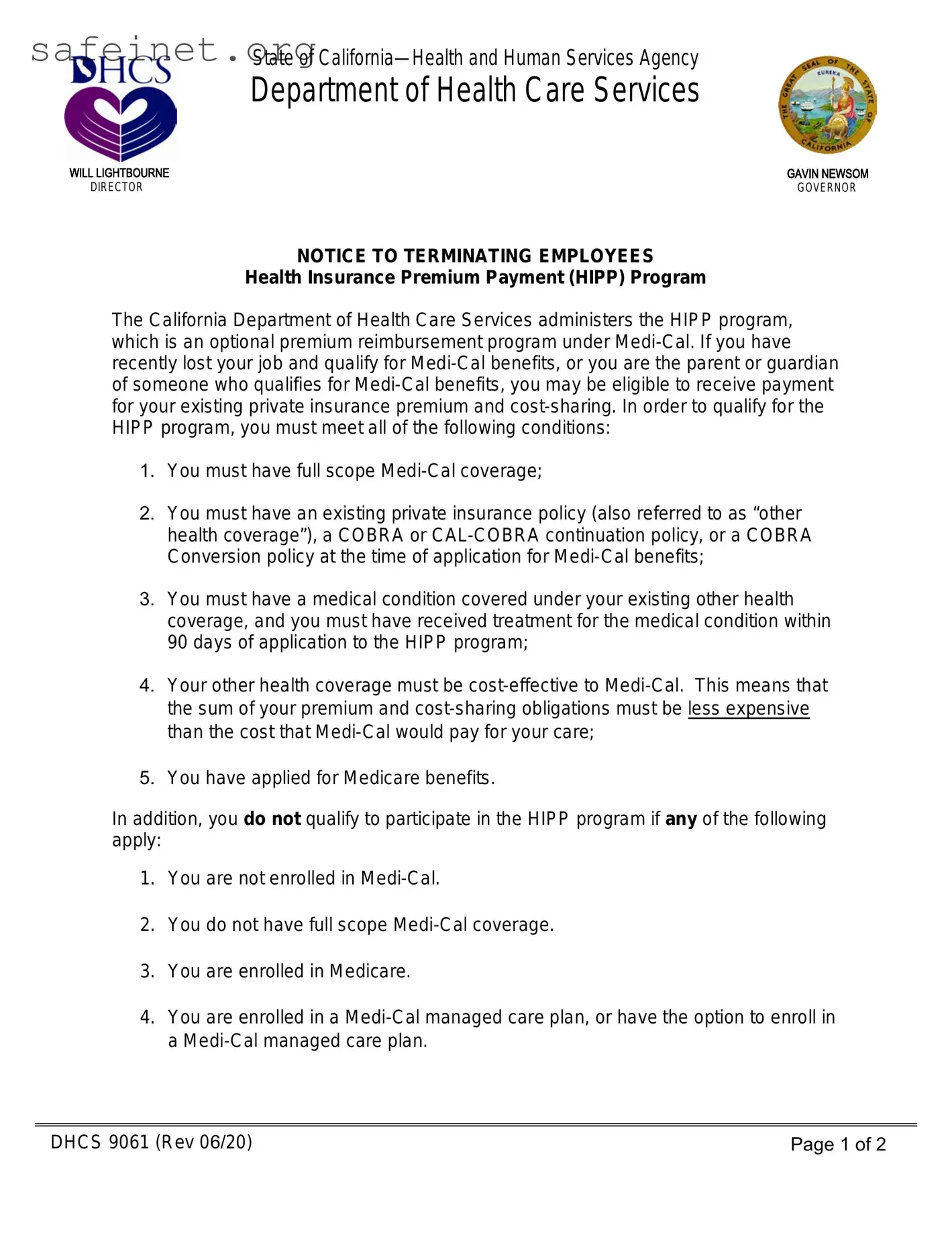What is the DHCS 9061 form?
The DHCS 9061 form is a document related to the Health Insurance Premium Payment (HIPP) Program in California. This program helps eligible individuals cover the costs of their private health insurance premiums if they are also receiving Medi-Cal benefits. The form serves as an application to participate in the HIPP program, ensuring that individuals can receive reimbursement for their health insurance costs.
Who is eligible to apply for the HIPP program?
To be eligible for the HIPP program, individuals must meet several criteria: they must have full scope Medi-Cal coverage, hold an existing private insurance policy, and have a medical condition covered by that policy. Additionally, they must have received treatment for that condition within the last 90 days. The combined premium and cost-sharing obligations of their private insurance must also be less than what Medi-Cal would pay for similar care. Lastly, applicants must have applied for Medicare benefits.
What are the ineligibility criteria for the HIPP program?
Certain situations disqualify an individual from participating in the HIPP program. These include not being enrolled in Medi-Cal, not having full scope Medi-Cal coverage, or being enrolled in Medicare. Additionally, individuals enrolled in a Medi-Cal managed care plan or those whose premiums are fully reimbursed by a third party are also ineligible. There are other specific conditions that could affect eligibility, such as being subject to a court order requiring a non-custodial parent to provide medical insurance.
How can one apply for the HIPP program?
Eligible individuals can apply for the HIPP program online through the California Department of Health Care Services website. The specific link to the application is http://dhcs.ca.gov/hipp. This process makes it easier for individuals to submit their applications from the comfort of their own homes.
What should one do if they have questions about Medi-Cal benefits?
If you have questions regarding how to apply for Medi-Cal benefits or other related inquiries, it is best to contact your local Medi-Cal county office directly. You can find the contact information and specific county offices at http://www.dhcs.ca.gov/services/medi-cal/Pages/CountyOffices.aspx. This will provide the most accurate and relevant information for your individual situation.
Is there a program for individuals with HIV/AIDS under the HIPP framework?
Yes, the Office of AIDS administers a program known as OA-HIPP (Office of AIDS Health Insurance Premium Payment Program). This program specifically helps California residents diagnosed with HIV/AIDS by covering their monthly health insurance premiums. It is available to those who are currently insured and at risk of losing coverage, as well as those who wish to purchase health insurance.
What is the contact information for the Office of AIDS regarding the OA-HIPP program?
Individuals seeking information about the OA-HIPP program can call (800) 367-2437. This line is dedicated to assisting residents in understanding their eligibility and application processes for this specific program tailored for those with HIV/AIDS.
Where can I find more information about the HIPP program?
For comprehensive information on the HIPP program, including eligibility requirements and the application process, the California Department of Health Care Services website is the best resource. By visiting http://dhcs.ca.gov/hipp, individuals can access all necessary details to understand and navigate the program effectively.


